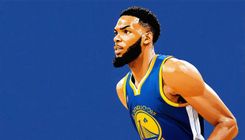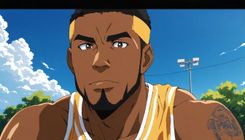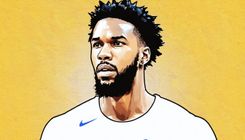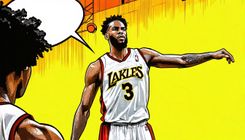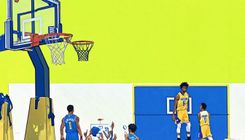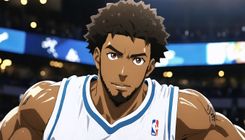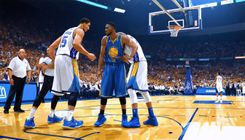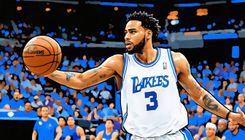Cleveland Cavaliers Contemplate Trade for LeBron James
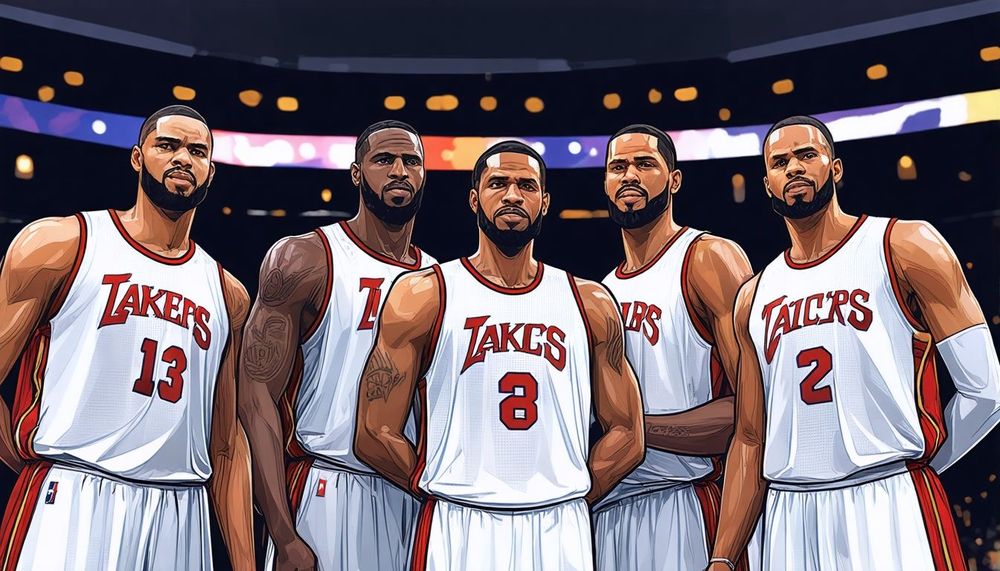
The prospect of a trade involving LeBron James continues to generate considerable discussion across the NBA. The potential for a deal between James and the Los Angeles Lakers has become increasingly plausible. As indicated by his agent, Rich Paul, there have been inquiries from four teams regarding a possible trade for James, with the Cleveland Cavaliers identified as one of the interested parties. However, any team looking to acquire the 40-year-old faces significant challenges, particularly following James's decision to exercise a $52.6 million player option for the 2025-26 season.
The Cavaliers are currently the only team in the NBA operating above the second apron luxury-tax threshold. This status complicates their ability to combine multiple player salaries in order to facilitate a trade for a player of James's caliber. Despite this obstacle, the Cavaliers' unique position may justify pursuing a reunion with the franchise's greatest player. The implications of such a move extend beyond the court, particularly as the franchise has recently become the most expensive team in the league, with a projected roster cost of $226.3 million. After acquiring Bradley Beal through a buyout with the Phoenix Suns, Cleveland's tax obligations have surged to approximately $149 million, bringing the total expenditure to an astonishing $375.3 million for the 2025-26 season, a figure that nearly doubles the projected costs for the defending champion Oklahoma City Thunder.
Owner Dan Gilbert is accustomed to high expenditures, as demonstrated by his willingness to absorb luxury-tax penalties exceeding $100 million during the Cavaliers' NBA Finals appearances from 2014 to 2018. Nevertheless, such a tax bill is a striking amount, especially considering the additional restrictions imposed by the second apron. The growing financial demands on the Cavaliers roster, highlighted by Evan Mobley's impending contract extension and Donovan Mitchell's recent max deal, contribute to the team's financial strain. This situation has prompted discussions around the viability of trading for James, as his expiring contract could provide both immediate benefit and long-term financial relief.
Currently, the largest expiring contract on the Cavaliers belongs to Dean Wade, valued at a mere $6.6 million, which does little to alleviate salary concerns. A trade for James would necessitate significant maneuvers to match his salary while simultaneously reducing overall team payroll. Potential candidates for this salary match could include Darius Garland, De'Andre Hunter, and Max Strus, among others. Essentially, the Cavaliers would need to shed $19.7 million in salary to comply with the second apron guidelines, thereby paving the way for a feasible trade with Los Angeles that could involve sending out Garland, Hunter, and Strus for James—and possibly even Bronny James. Such a transaction could save the Cavaliers approximately $81.8 million in salary for the 2026-27 season, while still retaining their core players in Mitchell, Mobley, and Allen.
The impact of the new collective bargaining agreement, particularly the introduction of the second apron, has drastically altered team management strategies in the NBA. The pressure for teams to remain below the second apron has resulted in increased urgency to address financial imbalances to prevent cascaded penalties that may restrict future roster improvements. The implications of this new financial landscape dictate that the Cavaliers must act now to avert potential pitfalls.
In trading for LeBron James, the Cavaliers would not only acquire an All-Star and All-NBA talent but also mitigate the looming financial burdens they face. The consequences of remaining above the second apron are significant; for instance, if the Cavaliers finish above this threshold in three out of four seasons, their future first-round draft pick will be downgraded, directly affecting their long-term competitiveness. Conversely, teams like the Los Angeles Clippers and the Denver Nuggets have exploited their position by making shrewd moves—capitalizing on roster changes to strengthen their squads without incurring the prohibitive costs associated with the second apron.
The prospect of bringing LeBron James back to Cleveland is not merely a financial maneuver but also a strategic enhancement. His impressive statistics, averaging 24.4 points, 7.8 rebounds, and 8.2 assists last season, demonstrate his continued elite play. The Cavaliers, who achieved an impressive 64-win season and captured the top seed in the Eastern Conference, fell short of advancing past the second round of the playoffs for the third consecutive year. Several players, including Garland and Hunter, dealt with injuries that hindered their contributions.
In stark contrast, LeBron James boasts an unparalleled record of consistency in the postseason, having never missed a playoff game across 292 contests. While acquiring James may not guarantee a repeat of last season's 64 victories, the focus should shift towards securing a championship. The Cavaliers have established a strong foundation, and the addition of a seasoned veteran like James could provide the experience necessary to navigate the rigors of the playoffs.
Admittedly, the prospect of trading for a 40-year-old player with an uncertain timeline for retirement carries inherent risks. Disrupting a roster that demonstrated such chemistry and depth last season raises concerns. Yet, the pressing need to comply with the second apron regulations may leave the Cavaliers with limited options moving forward. The worst-case scenario could involve sacrificing a young All-Star like Garland, potentially stunting the team’s growth and subjecting Koby Altman to scrutiny for altering the carefully constructed roster.
Conversely, a successful acquisition of James could manifest a compelling conclusion to a remarkable career. The nostalgia of James's previous stint in Cleveland, culminating in a championship victory in 2016, would amplify the excitement surrounding his potential return. The upcoming season marks the tenth anniversary of that championship team, and with the possibility of including Bronny James in the trade, the narrative surrounding the James family’s continued legacy in Cleveland deepens.
The Cavaliers also hold the rights to their second-round pick in 2026, coinciding with Bryce James becoming draft-eligible. The prospect of three members of the James family uniting on the same franchise adds an emotional layer to the potential transaction. Additionally, the possibility of former Cavs players like Kevin Love or Tristan Thompson returning to bolster the roster further enhances the imaginative storytelling surrounding this potential reunion. While the legacies of basketball legends often conclude in less favorable circumstances, LeBron James's second stint with the Cavaliers could culminate in a fairy-tale ending—solidifying his status in NBA history should he guide the team to another title.
